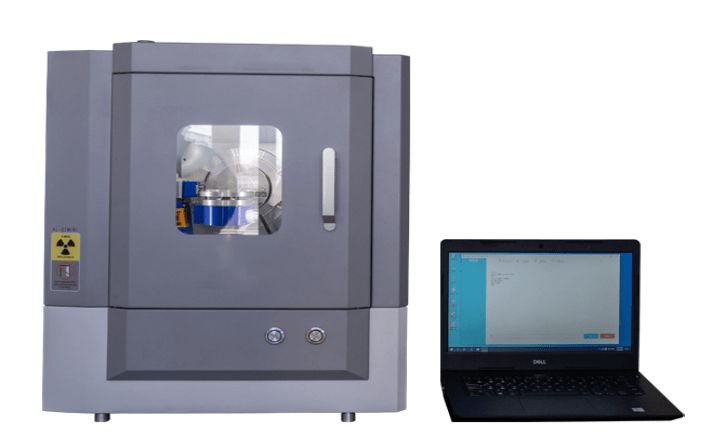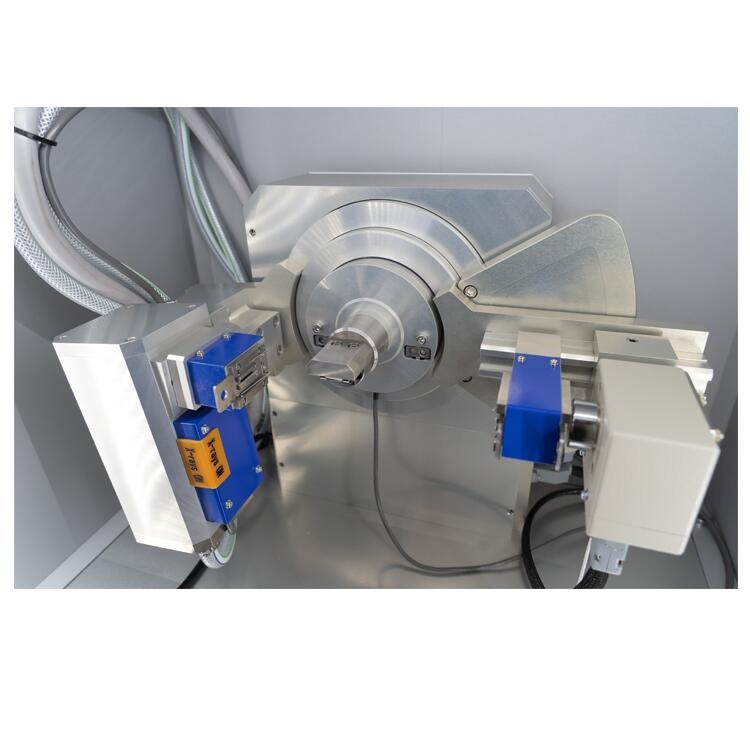The X-ray diffractometer employs the principle of X-ray diffraction to precisely determine a substance's crystal structure, texture, and stress. An X-ray diffractometer is capable of performing phase analysis, qualitative analysis, and quantitative analysis on substances.
How does an X-ray Diffractometer Work
Characteristic X-ray is an extremely short wavelength electromagnetic wave (approximately 200.06nm) that may penetrate a specific thickness of material and cause fluorescent materials to emit light, photographic latex photosensitivity, and gas ionisation. The X-ray diffractometer produced by the X instrument hitting the metal "target" with electron beams contains characteristic (or identifying) X-rays with certain wavelengths corresponding to various elements in the target.
Given that the wavelength of X-rays is similar to the distance between atoms inside crystals, German physicist M.von Laue proposed an important scientific theory in 1912: crystals can emit diffracted light as X-ray space, which means that when A beam X Rays pass through the crystal, the superposition of diffracted waves will increase the intensity of the rays in some directions while weakening the light in others. Analyzing the diffraction pattern left on the photographic film can reveal the structure of the crystal under test. This theory's viability was demonstrated in future experiments.

What are the Application Areas of X-ray Diffraction
Metallurgy, petroleum, the chemical industry, scientific research, aircraft, teaching, material production, and other fields all make extensive use of X-ray diffraction.
When the X-ray wavelength is known (choose typical X-rays with a set wavelength), you can meet the Bragg criterion by using fine powder or fine-grained polycrystalline linear samples from a pile of crystals with any orientation from any angle. Reflection will occur on the reflecting surface. After measuring, apply the Bragg formula to get the lattice spacing d, unit cell size, and unit cell type.
In X-ray structural analysis, X-ray diffraction uses the theoretical basis of the powder technique or Debye-Scherrer method to calculate the intensity of the diffraction line and hence the arrangement of atoms in the unit cell.
The single-crystal sample used in the Laue method to determine the single crystal orientation must keep the measured substance constant (that is, the remains unchanged), and the wavelength of the radiation beam is used as a variable to ensure that all crystal faces meet the conditions of the Bragg formula, so choose a continuous X-ray beam. Then, for measurement, utilise a crystal with a known structure (known as an analytical crystal). Once the direction of the diffraction line has been determined, the wavelength of the X-ray can be computed to find the element that provides the characteristic X-ray. This is an X-ray spectrometer for determining the composition of metals and alloys.
Then, for measurement, utilise a crystal with a known structure (analysis crystal). After determining the direction of the diffraction line, the crystal's X-ray wavelength can be estimated and analysed to discover its characteristic X-ray element. This is an X-ray spectrometer for determining the composition of metals and alloys.

Application of X-ray Diffractometer in Metallurgy
Then, for measurement, utilise a crystal with a known structure (analysis crystal). After determining the direction of the diffraction line, the crystal's X-ray wavelength can be estimated and analysed to discover its characteristic X-ray element. This is an X-ray spectrometer for determining the composition of metals and alloys.
In the field of mental determination, the most often utilised X-ray diffraction methods are qualitative analysis and quantitative analysis. To determine the phases present in the material, qualitative analysis compares the measured lattice spacing and diffraction intensity of the material to be tested with the diffraction data of the standard phase; quantitative analysis determines the phases of the material to be tested based on the intensity of the diffraction pattern Proportional content.
The accurate estimation of lattice parameters is frequently used to build the phase diagram's solid-state solubility curve. When the solute approaches the solubility limit, if the solute continues to increase, it will cause the precipitation of new phases and will no longer cause the lattice constant to change. This tipping point is known as the dissolution limit. Furthermore, exact measurement of the lattice constant can yield the number of atoms per unit cell, which can be used to define the kind of solid solution; it can also yield valuable physical constants such as density and expansion coefficient.
X-rays can be used to measure grain size (mosaic) and microscopic tension. The size and micro-stress of the crystal grains can be estimated by examining the shape and intensity of the diffracted light pattern. Metal deformation and heat treatment both result in visible changes, and these characteristics have a direct impact on the material's performance.
Furthermore, the X-ray diffractometer can be utilised to investigate the instantaneous dynamics of metals at high, low, and special temperatures.
The preceding is a simple overview of the X-Ray Diffractometer. You must decide whether you require an X-Ray Diffractometer based on your requirements. However, as a piece of essential laboratory equipment, the functionality and purpose of the X-Ray Diffractometer must be confirmed. Furthermore, the X-ray diffractometer can be utilised to investigate the instantaneous dynamics of metals at high, low, and special temperatures. If you have any questions about X-Ray Diffractometer or quickly learn the professional knowledge, please visit the article of "what is X-ray diffractometer"





Comments (0)